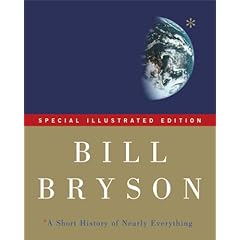
The World is Flat, by Thomas Friedman (2006 expanded ed) 600 pgs. More required reading for teachers or anybody else needing a primer on globalization and the future (perhaps already present) marketplace. I'd heard so much about this book on NPR etc., it was as if I'd already read it. But it was insightful as it is a brief history of the dot com phenom and its consequences. BTW there is now a new edition out; and somebody told me that Friedman now declares that the World is Round? Regardless of the poor theme, this read definately is a stark warning to the American way of life.




